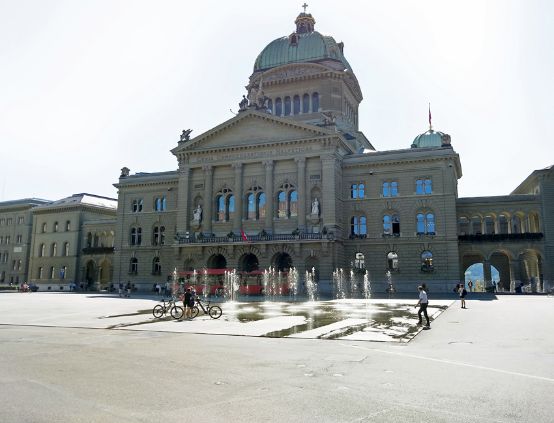PGM: Prevent lights from going out
The music sector fears a clear-cutting of the cultural ecosystem.

The Parliamentary Group on Music (PGM) had no choice at its second meeting of the year. For better or worse, it had to deal with the consequences of the coronavirus crisis. While the topic had been on the agenda in the spring, but not really on the agenda, the motto was now "5 months of the Covid-19 storm: consequences and implications for the music sector". And the latter are really drastic, as Stefano Kunz, Head of Political Work at the Swiss Music Council, explained at the beginning. The industry's turnover is likely to plummet this year - in view of Suisa's license income from performance rights (from concerts, music in the hospitality industry or entertainment events), which is down by around two thirds this year. Suisa is also expecting significantly lower revenues in 2021 compared to 2019.* This will have serious long-term consequences for music creators, who will have to expect significantly lower distributions from the copyright society in the coming years.
Freelancers on the brink
But that's not all. Another important source of income is also disappearing: music schools are reporting a drop in student numbers of up to 20 percent. Freelance music teachers in particular are feeling the effects of this. It was therefore clear to the Music Council that the previous financial aid from the federal government must be continued - which the National Council decided on the same day, but the Council of States rejected again the following day for the time being. Furthermore, freelancers and the self-employed should finally be given access to unemployment insurance (ALV) and loss of earnings compensation (EO).
Beat Santschi, the representative of the Swiss Musicians' Association (SMV), did not have much better to say. The permanent members of the orchestra are still protected by the collective employment contracts and have "only" had to accept wage cuts of up to 20 percent in some cases. Freelancers also suffer the most in the orchestral landscape, as they are the first to be cut by orchestras. However, it is completely unclear how concert life and thus the orchestras' income will develop. Organizers are therefore increasingly demanding that they be released from any obligations in the event of concert cancellations. After seven months of crisis, many freelancers are now definitely on the brink of financial collapse, emphasized Santschi.
Christoph Trummer, Head of Political Projects at Sonart, the professional association of freelance artists, explained what this means for him: most of his concerts have been canceled or postponed until next year, and he has had only one booking for the new tour planned from December since April. Gigs with an entrance fee have become financially unpredictable. The fixed business costs - primarily a rent of 650 francs - are barely covered by 750 francs EO. According to Trummer, planning the 2021 season is practically impossible. Cross-financing models would disappear, there would hardly be any larger festivals, which would also leave the agencies with nothing. A clear-cutting of the cultural ecosystem is to be feared.
Slump in sales for event organizers
The ideas of many politicians that the worst is now over for culture because events - even larger ones - are possible again were contradicted by the representatives of music clubs, festivals, labels and music managers who were also present. A typical music event has a lead time of around six months. There are still major hurdles even in the programming stage: prohibitive requirements, planning uncertainty due to changing entry regulations and unpredictable last-minute permit withdrawals turn the organization into a lottery. Ticket sales are not at all back to pre-corona levels. As a result, most event organizers are still facing a drop in sales of 80 to 100 percent. On average, their liquidity will last for another six months, after which many will have to call it a day: Lights out.
The Culture Taskforce of the Swiss Music Council lobbied parliamentarians intensively following the Council of States' decisions. In the end, one week after the PGM meeting, the Council of States also largely followed the National Council's line. The support measures for the self-employed and freelancers will be continued with confidence in the self-declarations of those affected, albeit not until the end of 2021, as the Culture Taskforce had called for, but initially until mid-June next year.
*
Passage on Suisa amended on September 21, 2020 due to a clarification by Suisa's communications department.








